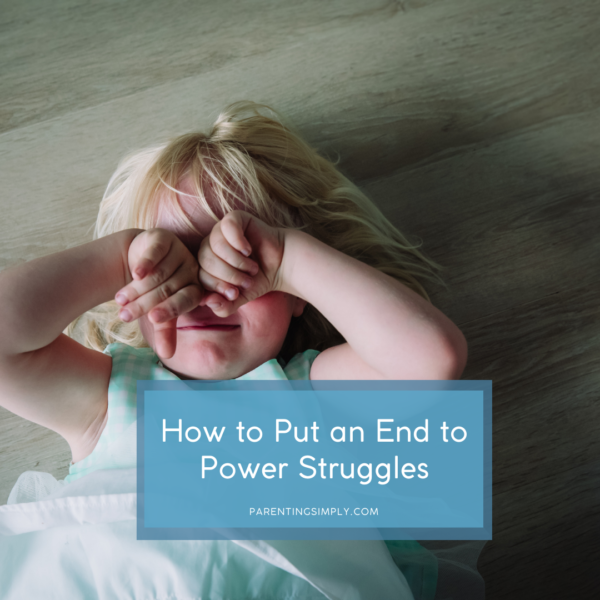When it comes to parenting, doing what’s best for your child can often lead to a power struggle between the two of you. Unfortunately, if arguing and throwing a tantrum gets children out of something once, they’re probably going to keep doing it. It’s up to you to break the cycle and put an end to power struggles with your child.
Here are some tips to help you avoid these draining power struggles
Give Your Children a Choice
Many times children will act out when they feel backed into a corner or powerless. Trying to get your kids to do something that they don’t want to do will likely foster rebellion and arguments. So instead of just telling them what to do, give them choices to get things done. For example, if getting the homework done is a source of family arguments, you might want to suggest two or three different times on the schedule where they can sit down and actually get the homework done.
Try to Avoid Arguments
Any time you get into an argument with your child, you give them the impression that they have the power to challenge what you say. This can lead to them thinking that acting defiant will get them what they want, which in turn feeds the cycle of power struggles and arguments.
If your child tries to draw you into an argument over something, don’t give in to them. Instead, tell them that the discussion is over and just leave the room. Walking away from it takes away all of their power to challenge you, since you’re not there to argue anymore.
Keep the Kids Involved
When your kids are involved in the process of setting up rules and routines, they will likely feel better about following through with these rules in the future. Instead of making these decisions purely on your own, invite your children in on the conversation and ask for their input. Keeping them involved in the decision-making process helps them to feel less overpowered and less likely to act out. Additionally, their input may also give you insight when it comes to establishing new rules.
For example, if your kids often battle over who gets to sit in the front seat, this probably creates a power struggle between them. They’ll be waiting for your to pick sides. However, if you take some time to work out a schedule together so they can take turns sitting up front, they’ll probably be more content waiting for their turn.
Work Alongside Them
If you work at a task along with your kids, they’ll see it more as something that needs to get done and not just something that you randomly decided to make them do. Your child may see telling them to do something as a challenge, but will probably be happy to lend a hand if they know their help is really needed.
If you ask your kids to do housework or clean their room, set a bit of time aside to help with the task. This will make the experience more fun and less bothersome for them. Just remember that you’re there to help, though – don’t do the work for them. It shouldn’t be an excuse for them to do less than their fair share!
The best way to win these power struggles with your kids is to avoid them completely. By making your children feel more involved and letting them know that their contribution is appreciated, they will view following the rules as helping you, not as a battle that has to be fought with you.
Want to go deeper and invest in developing your parenting skills?
Check out the latest classes from Parenting Simply HERE.


